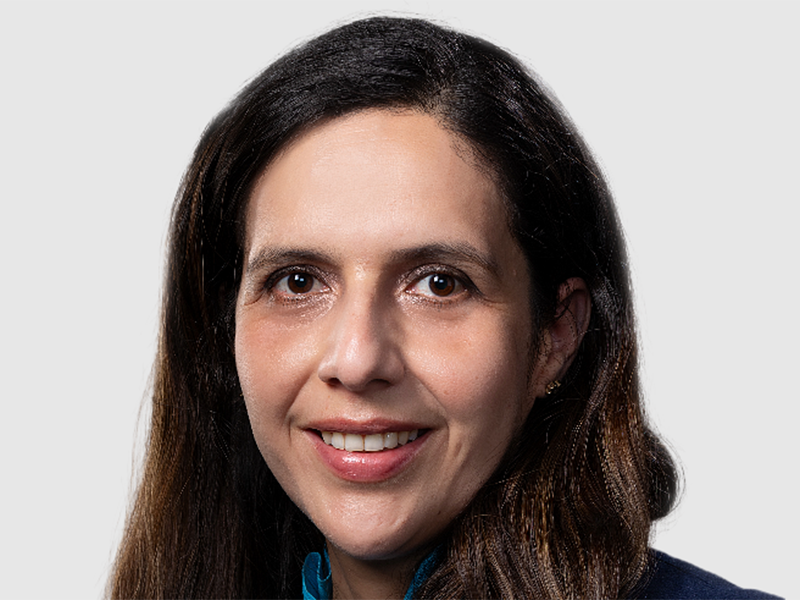Maria Carreon, associate professor in the Ralph E. Martin Department of Chemical Engineering, has received a Faculty Early Career Development Award from the National Science Foundation. Carreon's research is in the non-thermal plasma processing field.
The CAREER award supports "early-career faculty who have the potential to serve as academic role models in research and education," according to the NSF. Recipients of the award are seen by the NSF as "dedicated to stimulating the discovery process in which the excitement of research is enhanced by inspired teaching, enthusiastic learning and disseminating new knowledge." Carreon's award totals nearly $540,000 over five years and is supported by the NSF's Division of Chemical, Bioengineering, Environmental, and Transport Systems.
The CAREER award will directly support Carreon's research on ways to reform carbon dioxide into more useful compounds using plasma processing. Regarding this research, Carreon said, "Plasma has always transformed the world; now we need to understand it better and learn how to use it for a greater societal benefit."
"Maria's research to couple cold plasma with perovskite membrane technology for CO2 utilization is an example of the relevance and impact of chemical engineering research in solving society's critical problems," said Keisha Bishop Walters, Chemical Engineering Department head at the U of A.
Converting Greenhouse Gases More Sustainably
Non-thermal plasma processing is viewed as a more sustainable approach to converting greenhouse gases, such as carbon dioxide and methane, into oxygenated chemical fuels and feedstocks. The non-thermal process occurs at a lower temperature, lowering the scale, pressure and complexity of the current standard for greenhouse gas conversion.
Carreon's research through the CAREER award uses a plasma-enhanced method of converting greenhouse gases. Plasma catalysis is less well known but has good potential to impact the field, according to Carreon. A key part of this research involves the interaction between plasma and the perovskite catalysts used in the conversion process.
Carreon explained, "A perovskite is a crystalline material that can be activated uniquely by the presence of an electric field; hence this material can help to control the interactions between the perovskite surface and the plasma active generated species."
The research methods Carreon is investigating may lead to unprecedented oxygenated production rates for feeds and fuels. Combining those results with a more sustainable approach would lead to greenhouse gas processing options that are more energy flexible and efficient, creating an opportunity to expand how and where such processing could take place.
This research will be a part of the Carreon Research Group and support the energy and sustainability research focus areas within the Chemical Engineering Department.
As part of her CAREER award, Carreon will also conduct a STEM outreach camp for Girl Scouts. The camp will provide an immersive experience with hands-on activities. The camp's goal is to provide an early opportunity for participants to embrace an interest in science, technology, engineering and math.
About the Department of Chemical Engineering: Chemical engineering has been a part of the University of Arkansas curriculum since 1903. Today, the Ralph E. Martin Department of Chemical Engineering has an enrollment of over 300 students in its undergraduate and graduate degree programs and houses five endowed chairs and eight endowed professorships to support its faculty. Faculty expertise includes cellular engineering, chemical process safety, advanced materials, computational modeling, and membrane separations. A wide range of fundamental and applied research is conducted in the areas of energy, health, sustainability, and computational chemical engineering. The department is also home to the Chemical Hazards Research Center and is one of three national sites for the Membrane Science, Engineering, & Technology (MAST) Center. The Department of Chemical Engineering is named for alumnus Ralph E. Martin (B.S.Ch.E.'58, M.S.Ch.E.'60) in recognition of his 2005 endowment gift.
Topics
Contacts
Michael McAllister, communication and events specialist
Ralph E. Martin Department of Chemical Engineering
479-575-4396,
Jennifer P. Cook, director of communications
College of Engineering
479-575-5697,
